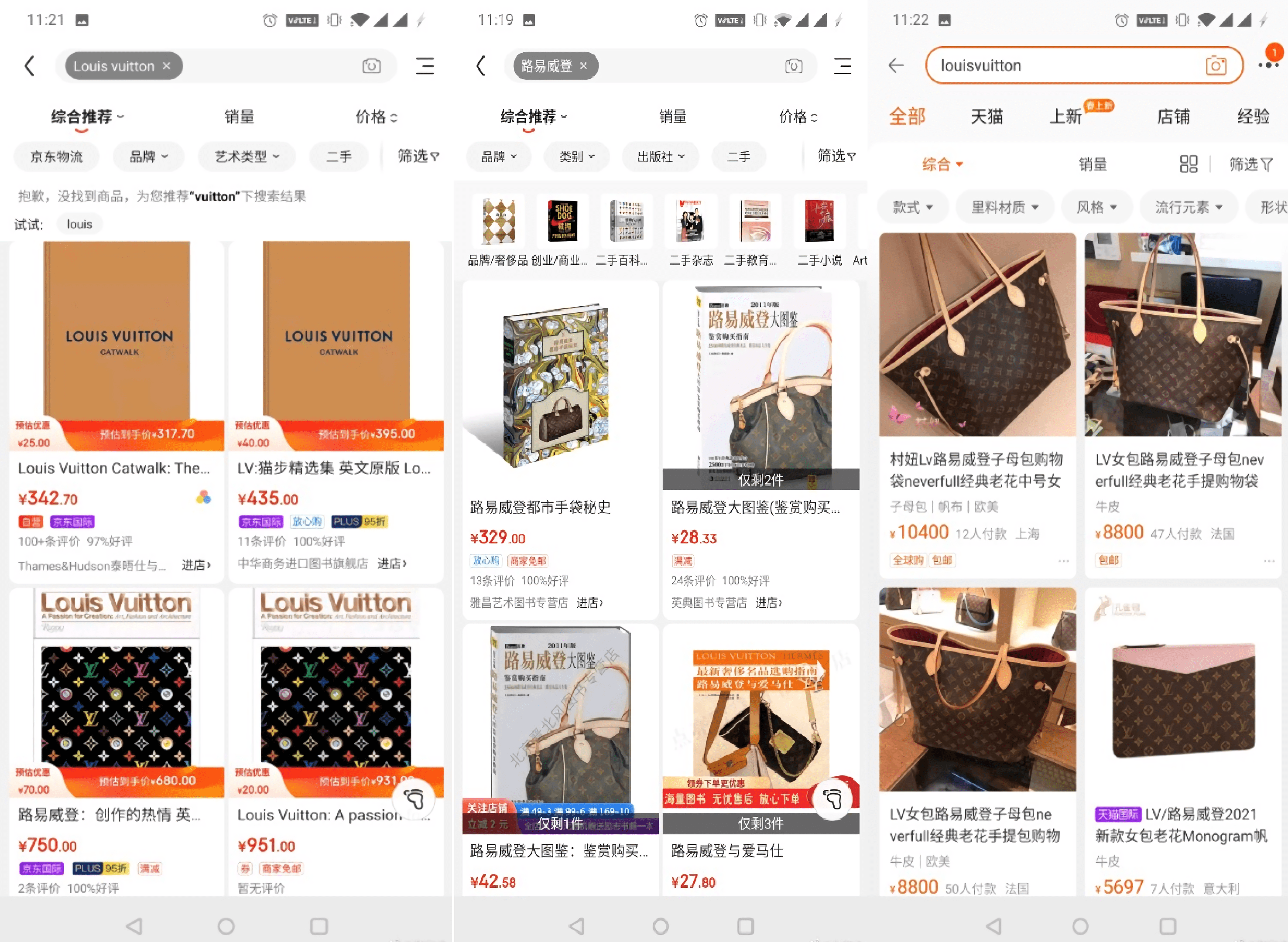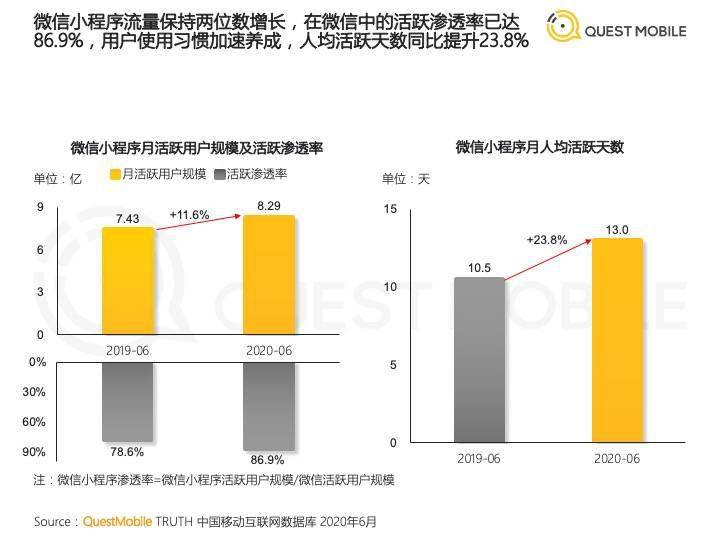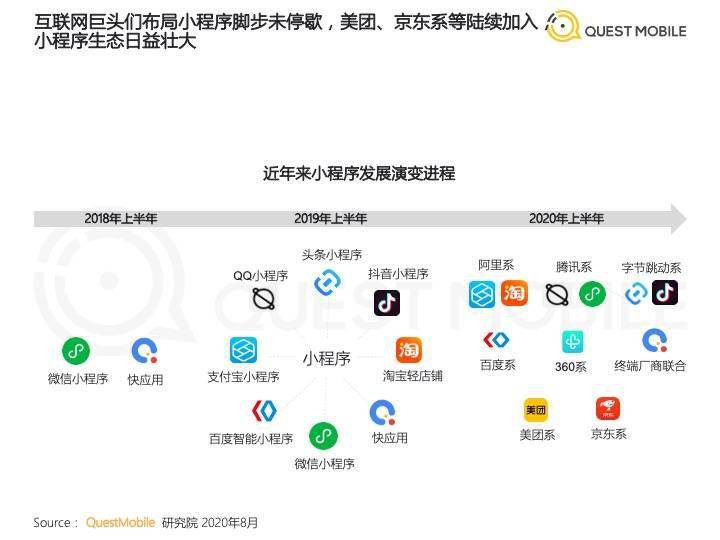Unknowingly, the WeChat Mini Program has been online for four years. During these four years, we have enjoyed the convenience brought by WeChat mini-programs. Use mini programs for online shopping, online social security and water and electricity payment, and show your health code when you go out. The existence of WeChat mini programs really makes our lives more convenient. This also makes us very much looking forward to what changes the future WeChat applet ecology will bring to our lives.
Recently, JD.com officially announced that JD Luxury Products will tailor a unique customized cooperation model for Louis Vuitton. Now, consumers enter the JD APP, search for “LV” in the search bar, and they will directly enter the official WeChat applet of Louis Vuitton. According to the official statement, this is a breakthrough attempt by Louis Vuitton and JD.com in digital channel innovation to ensure that customers can get a genuine exclusive consumption experience.

Jumping directly to the WeChat applet from JD.com is an unprecedented experience for users. Unlike Baidu, which is a big open source applet alliance, before 2021, WeChat applets are actually relatively closed. WeChat users cannot jump to Mini Programs through other applications, cannot jump to Mini Programs through web pages, and cannot share Mini Programs to Moments (currently the grayscale test function). Can the intercommunication between JD.com and WeChat Mini Programs be the starting point for the opening of WeChat Mini Programs?
Cause and effect
First of all, I need to explain that before this official cooperation, including Taobao, Tmall Mall and Jingdong Mall, Louis Vuitton officially did not log on to any domestic e-commerce platform. At that time, I searched for LV (Louis Vuitton) on JD.com and Taobao. Otherwise, I couldn’t get the relevant search results, or they were all products on the shelves of third-party merchants.

(Source: Weibo)
So what kind of results will you get when you search now? According to Xiao Lei’s actual experience, after users search for the “LV” keyword, the results are no longer full-screen products listed by third-party merchants. Jingdong Mall will automatically pop up LV’s promotional page. After the user clicks on the content of the page, he needs to authorize his WeChat account to log in, and he will automatically be redirected to the official WeChat applet of Louis Vuitton, where he can browse and purchase freely.

Interestingly, before this, foreign luxury goods merchants such as Armani, Louis Vuitton, Swarovski, GUCCI, etc. have not been very cold to domestic e-commerce websites. According to Ian Rogers, chief digital officer of the LVMH group, Louis Vuitton did not enter JD.com and Tmall. This is not because the domestic e-commerce platform is not suitable, but because they feel that their brand appeal is strong enough and they have their own regular customers. source.
That being the case, why is LV now willing to “commit” to Jingdong Mall? I personally think that in the cooperation between the two, the WeChat applet plays a key role. As Jingdong said, LV’s unique customized cooperation model is unprecedented in the industry. After LV entered JD.com, JD.com did not assume the function of sales channels, but played more of the role of brand marketing. In the words of industry insiders, with the help of the WeChat applet, JD can fully play the role of the “second official website” of luxury brands.

For LV, JD’s consumer groups cannot be ignored. According to official data, as of December 31, 2020, JD.com has more than 470 million active purchasers, and the core user group is also rising. These consumer groups will bring good potential user conversion for luxury brands. In addition, last year’s top search keyword for JD Luxury Products was LV, which shows that consumers are paying attention to it. The cooperation between Louis Vuitton and JD.com is expected to bring sufficient traffic to its WeChat Mini Program.
On the other hand, luxury goods are not something commonly used by civilians. If there is no WeChat applet, JD.com and LV promote similar cooperation, and ultimately they can only direct users to the download page of the LV Mall application. In this case, the user conversion rate is not ideal. In contrast, the WeChat applet does not require users to download and install, and click to jump to use it directly. It has a better experience than the App, and the user conversion rate is more ideal.

As for JD.com, as early as 2019, JD.com has already begun preparations for small programs. By 2020, the JD Mini Program Open Platform will be officially launched, announcing the seamless connection between JD and WeChat platforms. After JD.com and WeChat mini programs are interoperable, the new mini program services will be able to enjoy the user and traffic dividends of the two ecosystems of JD and WeChat. Through this cooperation, JD can better tap the user potential of its own platform and attract more manufacturers to come to cooperate.
On the other hand, the official entry of the LV brand can serve as a role of de-forgery and authenticity. Prior to this, even if LV officially did not enter the major platforms, there are many Louis Vuitton on the domestic e-commerce platform, including genuine products purchased from offline containers, self-counterfeit counterfeit products, and various products with different ingredients. After LV settled in, Jingdong could no longer search for corresponding keywords, and would only jump directly to the official mall. This will not only ensure that LV’s brand value is not stigmatized, but also better protect the rights and interests of JD luxury users.
An open avenue
From the data point of view, the WeChat applet is undoubtedly quite successful. According to the data released on the WeChat Open Course PRO in 2021, the trading ecology of WeChat Mini Programs is maintaining a positive and rapid development. In 2020, the average annual DAU of mini programs will exceed 400 million, and the annual cumulative transaction volume will increase by more than 100% year-on-year. Thanks to the widespread popularity of mini programs in the retail scene, more diversified mini program services have been accepted by users, and the annual per capita transaction amount has increased by 67%.
On the other hand, according to the “2020 Semi-Annual Report on WeChat Mini Programs” released by QuestMobile. As of June 2020, WeChat Mini Program traffic has maintained a double-digit growth. The monthly coverage of users has reached 830 million, an increase of 11.6% compared to last year. The number of Mini Programs with monthly active users of more than one million has exceeded 1,000, and the number of users per capita has exceeded 1,000. The number of uses has also increased to 9.8, and the number of active days per capita has increased by 23.8% year-on-year.

Relying on the advantages of the traffic end, the WeChat applet ecosystem has maintained rapid development, which can be said to be the top stream of the domestic applet ecosystem. Relying on its close relationship with Tencent, JD has been accelerating the sinking of small programs. Previously, JD.com had launched multiple official accounts and mini programs such as “JD Shopping” and “Jingxi” on WeChat, and used multiple mini programs to complete business district segmentation and obtain traffic from WeChat’s active user groups. Even Taobao and Xianyu, who were once the same rivals, hope to find new sources of traffic through the WeChat applet.
However, the so-called mini program ecology is never exclusive to one family. In addition to WeChat, whether it is foreign Facebook, Google or domestic Baidu, Ali, ByteDance, 360, Kuaiapp, Meituan, Jingdong, etc., have launched their own small program platforms. In the face of external shocks brought by many new players, Tencent WeChat has an advantage, but it also needs to do something to stabilize its position.

Fundamentally, the successful realization of this cooperation is indeed due to the increasingly open WeChat applet environment. In the past, we referred to the characteristics of WeChat Mini Programs as “decentralization.” In short, it emphasizes the tool characteristics of small programs, and users “use it and leave.” Except for the official entrance provided by WeChat, users can only use commonly used applets through the drop-down menu. There is no way to share applets to Moments, and there is no possibility to open applets through external links.
At the WeChat session of the Tencent Global Digital Ecosystem Conference held in September 2020, the Tencent WeChat team once stated: “In the past, the WeChat applet jump rules were relatively closed, resulting in services in some scenarios that could not be satisfied with applets. WeChat will continue to The ability to jump will continue to be opened up.” Judging from the official scenarios, it includes mini programs jumping to mini programs, APP jumping to mini programs, HTML jumping to mini programs, etc. Today, the cooperation between JD and LV is realized through the function of APP to jump to the applet.

In addition, the sharing capabilities of WeChat Mini Programs have also been opened up. Prior to this, WeChat users could only share mini programs to the chat window, but did not have the ability to share mini programs to Moments. Currently, the “Share to Moments” function has been tested in grayscale. After completing the sharing scene of the applet, a good WeChat applet service is more likely to emerge and be seen by users.
It is conceivable that the WeChat mini-programs will become more and more open in the future. After the jump function is fully released, WeChat can achieve the effect of multiple small program traffic entrances to jointly divert traffic. For example, if a user enters a designated brand in the JD search box, he can directly reach the mini program of the corresponding brand through the associated word below. In addition, the WeChat Mini Program can reach users through public account articles, video account works, Moments sharing, group chat sharing, etc., to gain more traffic.
On the other hand, judging from the fact that the open platform of JD’s applet can connect to the WeChat applet platform, the future WeChat applet may embark on a unique open ecosystem. Through WeChat open source docking, more Internet platforms will be launched on WeChat applet. program. This approach can not only reduce the cost of platform construction, but also break the boundaries of different small program platforms, allowing each platform to jointly operate users, forming an opening centered on WeChat small programs. Once this kind of ecology is established, barriers will be formed and it will be difficult to break through by latecomers. The ecology of WeChat applets will also become more prosperous.




























































You must log in to post a comment.